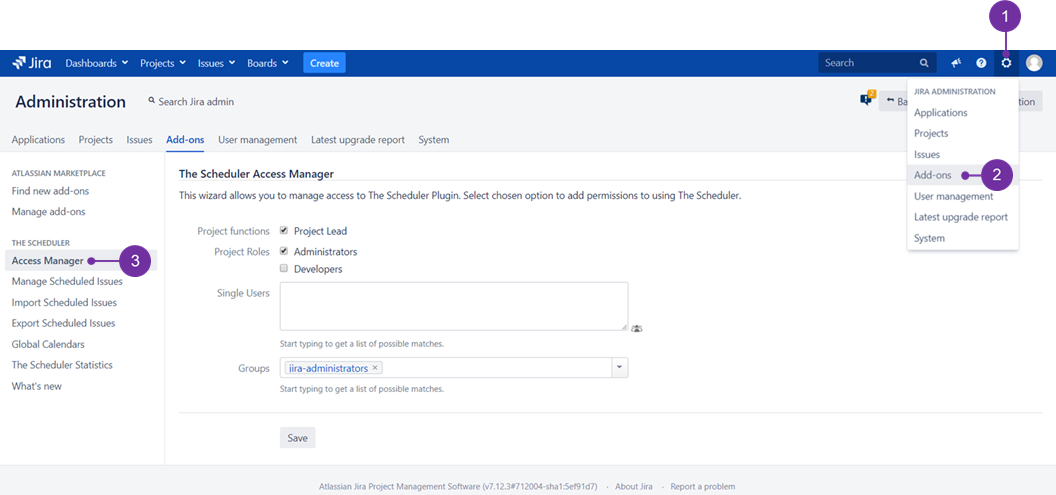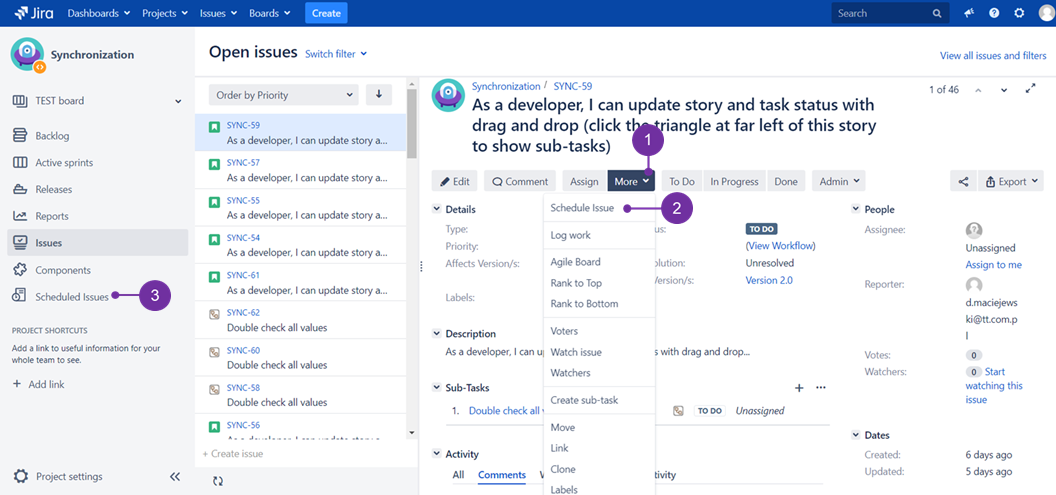Jira hosting: Server, Data Center
Please, note that this feature is available until version 6.4.7 of The Scheduler.
You can manage access to Scheduler feature in Add-ons (Security in pre 4.0.5 versions) section under System Administration section:
...
"Access Manager" (3) is located at the left bottom area of the page.
...
You can grant permissions to Project Leaders, project roles, individual users and groups.
...
Only user with granted permissions are able to see and access "Schedules Issues" (3) option in the left hand side panel. The same goes for "Schedule Issue" (2) option cloaked inside "More" (1) menu.
...
Jira hosting: Cloud
Please, note that this feature is permanently removed from The Scheduler since version 3.2.1.
To change rights of who can and who cannot create issues via The Scheduler add-on in Cloud please follow the following steps:
![]() Please note that to perform the below actions you must be granted with Project Admin rights.
Please note that to perform the below actions you must be granted with Project Admin rights.
From the "Projects" drop-down menu (1) please select a desired project, in which you plan to amend or add new permissions for a scheduled issues management. After that please scroll down and access "Project Settings" (2).
...
On a newly loaded panel on the left hand go to "Apps" (1↓):
...
then "Scheduler Access Management" (2↓):
...
Finally, you will see:
...
The Scheduler Access Management gives you a chance to allow or forbid in exactly the same manner as standard JIRA permissions to manage issues. By default every project admin has full rights in this add-on. To add additional Project Roles (1↑), Groups (2↑) or just Single Users (3↖) please review the presented above graphic.
![]() In case of "Project Roles" you just need to tick those that you wish to give an access with. For "Groups" and "Users" use a relevant "Add" button.
In case of "Project Roles" you just need to tick those that you wish to give an access with. For "Groups" and "Users" use a relevant "Add" button.
After adding such, they will be able to access "Scheduled Issue Wizard" and manage it with full rights (i.e. edit or delete somebody else scheduled issues, or create scheduled issues in someone else's name).

